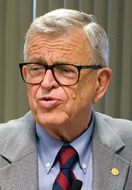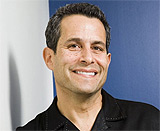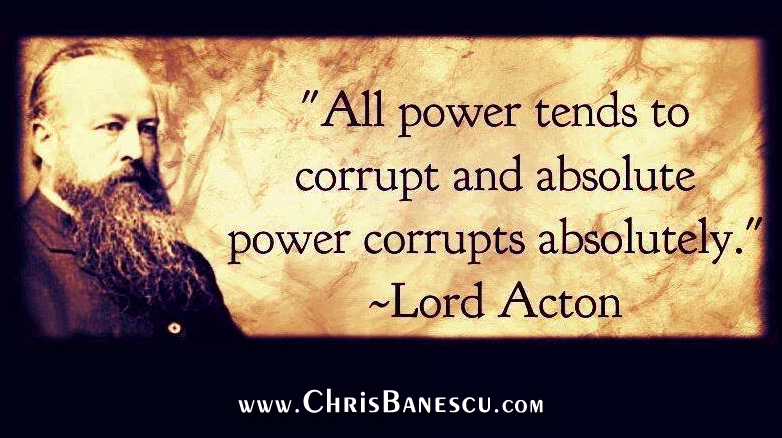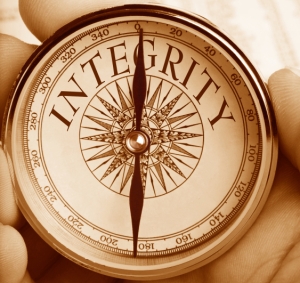by Priscilla Petty –
If I had to pinpoint one single way in which our country has gone astray, I’d say that it’s when we allowed politicians to manipulate the tax code to benefit those whom they favor. There are many ways, of course, in which our country’s trajectory has taken a downward rather than upward turn, but politicians’ control of individual citizens’ money, their taking great quantities of it as though it actually belonged to the politicians to use for their own benefit and for politicians’ chosen purposes, has bankrupted us not only fiscally but morally. [Read more…]
Ethics
How to Turn Disaster Into Gold
 by Jason Fried –
by Jason Fried –
When one of our products malfunctioned, thousands of stranded customers erupted in fury. Yet we came out of the crisis more credible than ever. Here’s what we did.
It was a really lousy week.
One of 37signals’s key products is Campfire, a real-time chat tool for small businesses. For about a week in mid-December, Campfire, which users access via the Web, kept bouncing on- and offline. This was the first major problem we have had with Campfire since it launched in 2006. For a product that needs to be as reliable as the dial tone on your phone, things couldn’t have been worse.
Thousands of companies rely on Campfire. At 37signals, we use Campfire to run our business. Because we have employees in a dozen cities around the world, Campfire is our lifeline. It’s how we communicate with one another in real time. Campfire is where we make decisions, share designs, debate ideas, broadcast companywide announcements, and keep up to date on what everyone’s working on. [Read more…]
Codes Are Not Enough, Why We Need Ethics

by Chuck Colson –
At the recently concluded meeting of the American Economic Association, the most contentious issue had nothing to do with economics, per se. It wasn’t about “the economics of the organic food system,” or “the costs and benefits of pollution control,” as two of the seminars were labeled.
No, the behavior drawing the most attention, both inside and outside the profession, was ethics — or more to the point, the lack of ethics — of economists themselves.
According to a recent article in Slate magazine, the call of for a “code of ethical standards” comes in the wake of series of “blows to the prestige of the profession.” These include “housing crisis, the credit crunch, the financial crisis, the recession, the collapse of several European economies, and the overhaul of U.S. banking regulation.” [Read more…]
How to Make Your Employees Smile

11/19/2010 – Paul Spiegelman –
Paul Spiegelman, the founder and CEO of Beryl, a call-center company in Bedford, Texas, has built a unique, people-centric culture, which he chronicled in the book, Why is Everyone Smiling? His next book, co-authored with Beryl employees, is titled Smile Guide: Employee Perspectives on Culture, Loyalty and Profit. Here, Spiegelman shares tips on how to keep your workers happy.
1. Give People a Voice
“Listen to what your employees say,” says Spiegelman. “And don’t just listen – implement the ideas that they have, and give them credit for those ideas. As entrepreneurs, we might in our gut know the right answers to certain questions, but it is often better to let workers tell you what the answers are and give them credit.” [Read more…]
The Social Network
The Crisis of Ethics in America
10/8/2010 – Chuck Colson –
Even before the critically acclaimed film The Social Network opened in theaters, there was one big financial winner: Newark, New Jersey’s public schools.
While critics were screening the movie, Facebook founder Mark Zuckerberg donated $100 million to the struggling school system. Not only that, he made the announcement on Oprah.
Apparently, Zuckerberg was looking for a little bit of good PR. He’s concerned that people who see the film may question his personal ethics. The more important concern ought to be, however, what the film says about business ethics in our culture. [Read more…]
Warning Signs of Power Corruption in Organizations
 by Chris Banescu –
by Chris Banescu –
Power tends to corrupt, and absolute power corrupts absolutely. Great men are almost always bad men, even when they exercise influence and not authority: still more when you superadd the tendency or certainty of corruption by full authority. There is no worse heresy than the fact that the office sanctifies the holder of it. – Lord Acton
Lord Acton’s dictum, made in 1887, clearly warns us that the practice of wielding power and influence can corrode the character of leaders. History is replete with examples of individuals who wielded unchecked power and eroded not only their own integrity, but also the ethical and moral foundations of the organizations they led and brought them to catastrophe and ruin. This danger is true of all organizations including businesses, religious institutions, and governments.
Here is the risk inherent in leadership: The greater the leader’s power, wealth, authority, and influence, the more likely the leader could succumb to ethical lapses and moral failings. The risk increases if the organization has a culture that lacks financial or managerial transparency and accountability, has insufficient checks and balances on executive power, and discourages criticism from subordinates or members. When a leader with a poorly developed ethical or moral sense ends up leading an organization with a culture that prevents ethical self-examination, a slow but perfect storm starts to form that demands compromise from all levels of leadership and eventually leads to catastrophic consequences. [Read more…]
Key Characteristics of Great Leaders – Part II
 by Chris Banescu –
by Chris Banescu –
In this article I’m continuing with my review of the key characteristics of great leaders. Here are some additional qualities that embody superior leadership.
Great leaders surround themselves with greatness. They actively seek out the best possible people and hire them to fill all key positions within their organizations. Great leaders know that surrounding themselves with excellence is a direct reflection on their own character, abilities, and effectiveness as leaders. They understand that their own success and the success of their organizations depend mostly on hiring and promoting the best qualified, ethical, skilled, responsible, mature, and productive people and giving them the proper resources, authority, and freedom to do what’s needed for the long-term benefit of their companies. Great leaders do not feel threatened by anyone lower in the chain of command who’s smarter, better educated, more productive, or more popular than they are. They respect the greatness and unique abilities of the individuals they lead and encourage them to continually flourish and grow. [Read more…]
